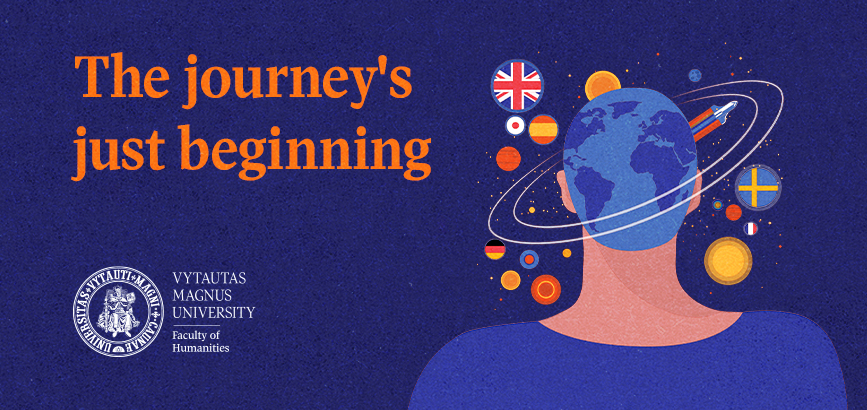Research Clusters
The Church’s Relations with the State and Society in Lithuania
The aim of this cluster is to investigate the relations between the Christian Church, the state, and the community. More specifically, the research is focused on the spiritual and historical development of parishes and the relations of the Catholic Church with Lithuanian political parties and ethnical minorities in the Lithuanian Republic during the period of 1918–1940.
Interdisciplinary Research of Lithuanian Cities
The cluster members focus on publishing research as well as iconographical and cartographical sources in international scientific publications; improving cooperation with other Lithuanian scientific historical centres in order to develop joint research programmes.
Lithuanian Migration and Diaspora Studies
The goals of the cluster are investigation of problems associated with the origins of the Lithuanian Diaspora and its cultural, political, and social activities as well as carrying out further systematic interdisciplinary research on transnational migration and diaspora processes.
Disintegration of Communism and Post-Communist Transformations
The major involvement of the researchers is interdisciplinary and comparative research of disintegration of communism, national liberation movements and post-communist transformations in Lithuania and East-Central Europe.
Research of Lithuanian Military History and Heritage
The activities of the cluster involve investigations of the history of the old and modern Lithuanian army in order to develop the civil and national consciousness of society and to educate Lithuanian citizens. The conducted research aims to contribute to the development and identity formation of the Lithuanian army.
Research on Intercultural Art Exchange in Eastern and Central Europe: Global Contexts and Local Practices
The main focus of this cluster is researching intercultural and transnational dimensions of artistic practices in Central and Eastern Europe. The thematic framework includes the methodological and theoretical aspects of intercultural communication in art, the formation of the theoretical models of cultural dialogue, and the problematic aspects of applying contemporary cultural theories to the studies of Lithuanian art.
Research of Lithuanian Art and Identity of Cultural Heritage
The cluster investigates the Lithuanian art and cultural heritage in the Grand Duchy of Lithuania (GDL) and the 19-20th century Lithuania in the European context. Among other topics, focus is on the changes of Lithuanian sacral and secular (fine and applied) art, the objects of architecture, events, personalities, and the history of artistic schools, styles, and iconography.
Applied Translation and Intercultural Communication Studies
The research of the cluster deals with questions of translation and intercultural communication within the framework of cultural, literary and linguistic studies. The research includes an interdisciplinary analysis of theoretical, historical, and practical issues of translation. The research is geared towards the changes and challenges generated by integration and globalization processes and their effect on culture and communication.
Research on Plurilingual Competence Development
The main scientific research fields of the cluster are plurilingualism and multilingualism as cultural phenomena and educational objects. The specific topics include issues of transfer and interference of linguistic, sociolinguistic, discourse, pragmatic and intercultural aspects while learning the second, third and other languages as well as assessment and recognition of language competences acquired in informal and non-formal learning, and teaching and learning languages for specific purposes.
Nation and Tradition in the Modern World: Ethnological Studies
The main research areas of the cluster cover transformation of ethnic traditions as well as studies of contemporary folklore and urban culture. Specifically, the key research issues include ethnic, cultural, and religious identity of traditional Lithuanian culture, the folklore of modern society, and urban social organization as well as the models of urban social life.
Connections between Texts of Literature and Culture Processes
The scholars of the cluster analyze processes of world literatures from a comparative point of view, focusing on cultural processes; they explore the role of Lithuanian literature in present-day culture of Lithuania and Europe and try to preserve the national identity in the age of globalization; researchers also put much effort in creating the network of institutions interested in Lithuanian literature.
Research on Religion and Culture
The main focus of the cluster is investigation of interactions between religion and culture and between particular religions and cultures as universal human phenomena. Conceptual theoretical research and empirical inquiry are pursued applying methodologies and paradigms of philosophy, theology, sociology, anthropology and ethnology. Specific research topics include religion and its historical transformations; formation and transformation of religious rituals; enculturation of Christianity; and studies of ecumenical and interreligious dialogue.
Research on Practical Philosophy
The aim of the cluster is to intensify investigations important for social and natural sciences and the humanities because of their practical applications in a variety of areas within these fields. The research results may be applied for modernisation of the society and analysed from an international perspective.
Research on Multiculturalism and Language Change in the Context of Globalization
The scholarly research in the cluster spreads over the following research areas: analysis of characteristic features of languages and their use, investigation of changes in language systems under the influence of globalization which, at the same time, reveal the phenomenon of variability-stability in the langue/ parole dichotomy. In their research, scholars focus on the development of specific features of language in a multilingual society, describe typical developments of the Lithuanian language and compare/ contrast them with other languages.












